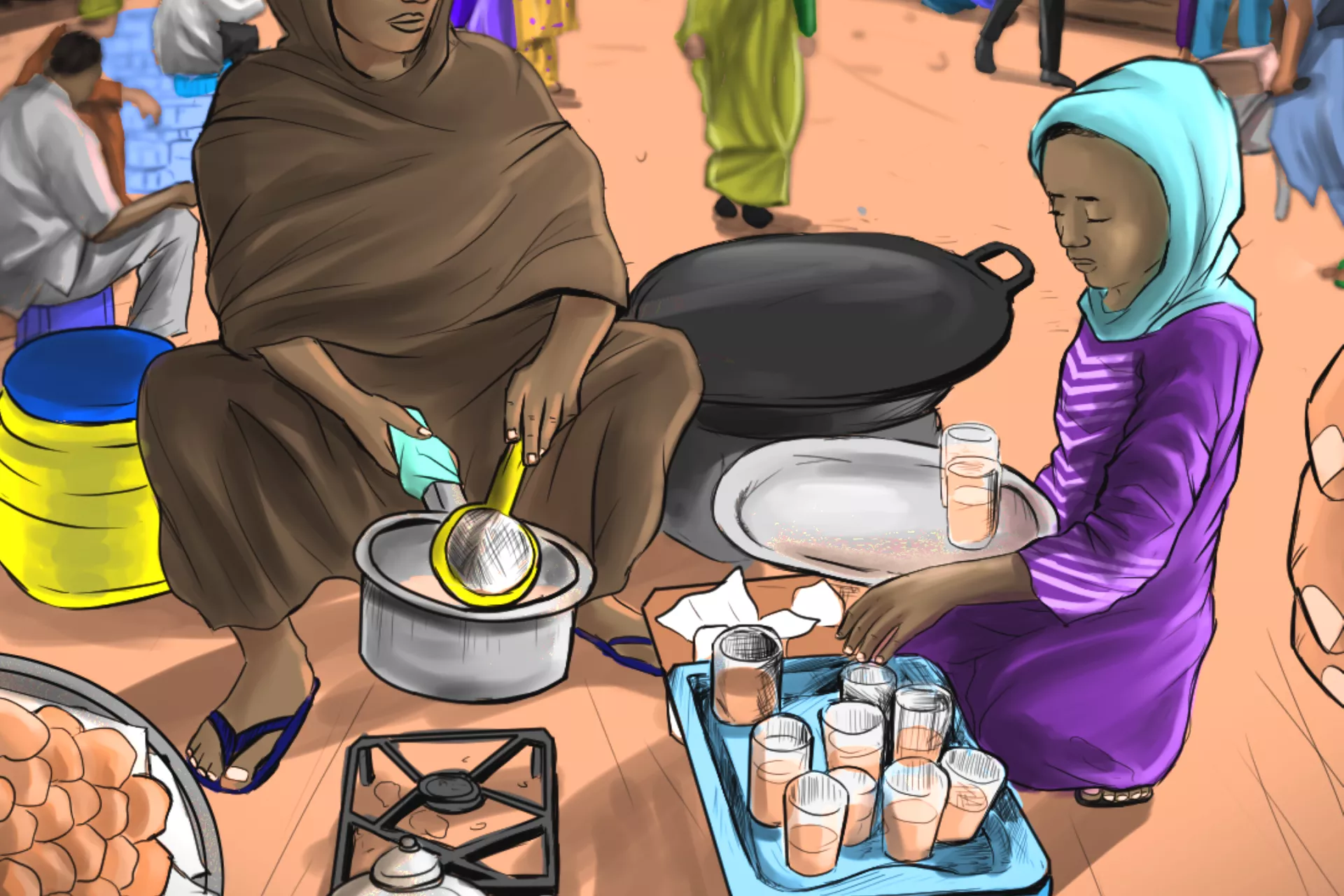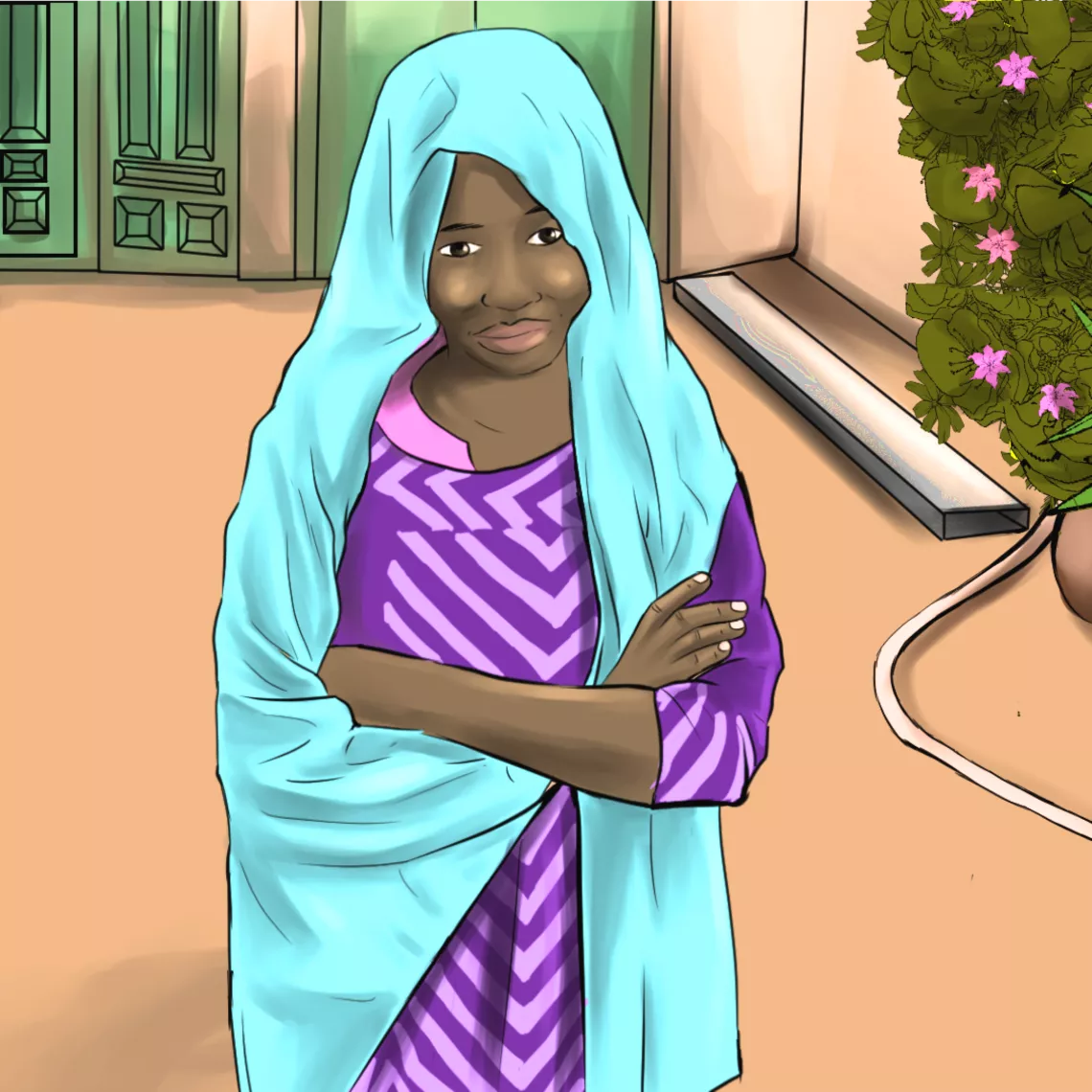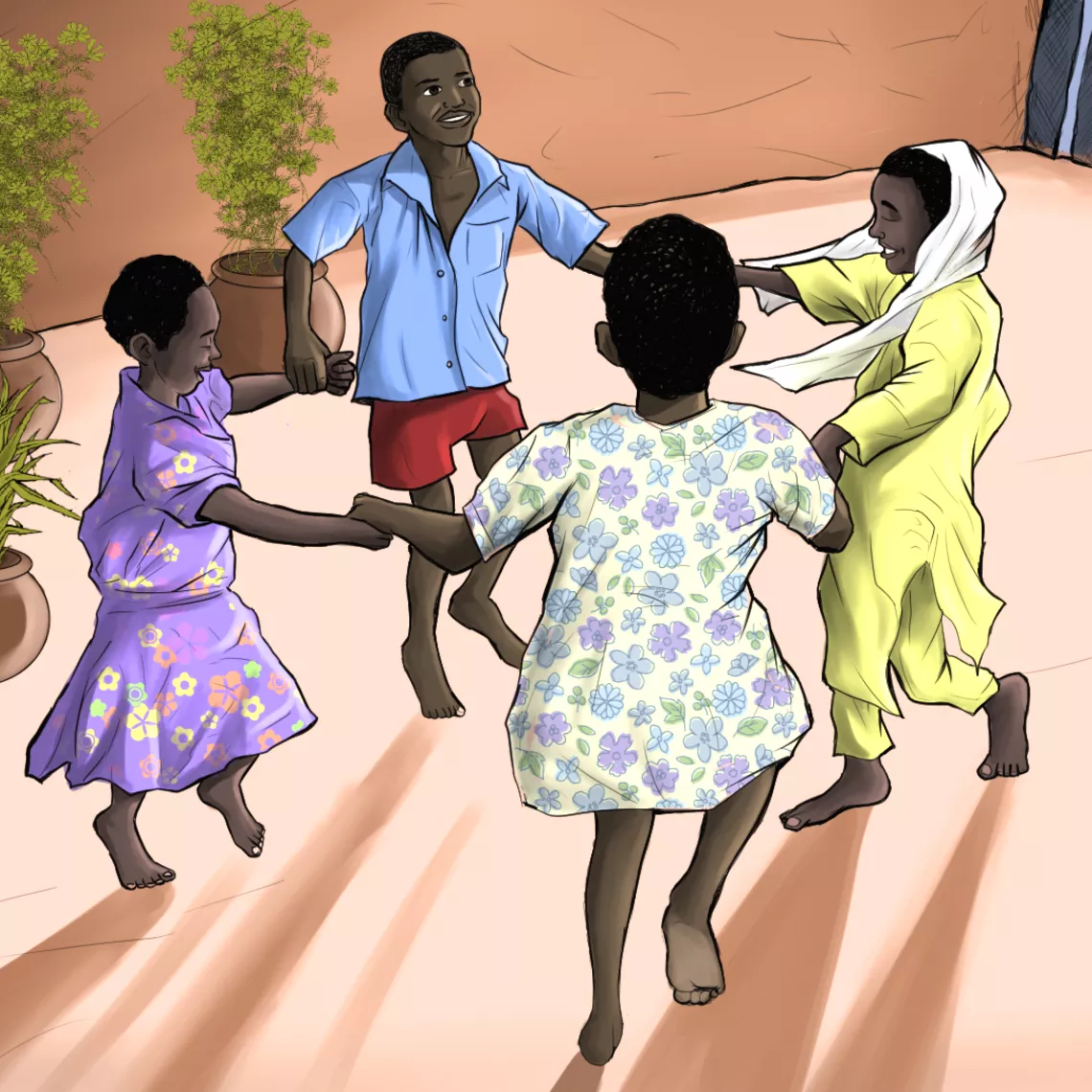Between poverty and the deprivation of childhood … children’s suffering lies
Children in West Darfur find creative ways to regain their childhood

- Available in:
- English
- العربية
I know that education is better than work, but I had to work in order to live.
Child labour is one of the most prominent social phenomena that has spread in various communities with devastating effects on children's lives. Poverty is one of the most common causes that makes children feel they have no choice but to engage in work, as many of them find themselves obligated to support their family or contribute to providing for various needs.
Child abuse in any form of forced child labour can cause harm to children’s mental and physical development, deprive children of their natural childhood, affect their dignity and capabilities, and impede their ability to enjoy their basic rights, such as education, health and protection. The deprivation of childhood is one of the worst experiences a child can be exposed to, and it can have long-lasting psychological and physical effects throughout that child’s life.
The population of West Darfur exceeds 1.5 million people, among which there are 775,700 children aged between one and 18 years. About 362 children in the State of West Darfur are involved in different kinds of occupations, such as manufacturing building bricks, transporting sand, fixing shoes, or selling goods or tea. In El Geneina only, there are more than 189 children aged between five and 18 who work and live in the streets, where most of them practice dangerous occupations that leave them exposed to violence, exploitation and abuse.

I wish I could spend my day like the rest of the children and be able to play with my friends.
A day in the life of a child working in El Geneina
Leila Mohamed, 11, is one of dozens of children deprived of their childhood due to difficult livelihood conditions. Laila lives with her family in El Geneina locality, in West Darfur state. She describes to us how she spends most of her day working in Alaradaiba market distributing tea for a living.
What are the reasons why you work?
No one forced me to work, but my family's circumstances are difficult, and I want to help them save some money. I benefit a lot from this work.
How do you feel as a child carrying such a responsibility?
I feel sad when I see children playing in the yards or going to school while I work all day. I know that education is better than work, but I had to work in order to live.
What are the difficulties you face at work?
I am always subjected to verbal violence and abuse. This annoys me a lot, but I have no other choice.
What is your dream?
I remember seeing a sick person suffering from pain, and that man couldn't get medicine. This saddened me a lot, and since that day I wished to become a doctor and have a hospital so that I can treat all the patients. I also dream of owning a car to visit different areas of Sudan.

Children unleash creativity despite deprivation
Every evening, the city square becomes adorned with the voices of children who gather, sing or practice recreational activities such as sports, drawing and playing. They do this to express their dreams and aspirations, through the open daycare centers supported by UNICEF in collaboration with the Ministry of Health and Social Welfare, the State Council for Child Welfare (SCCW), and the Family and Child Protection Unit in West Darfur., Their talents also extend to presentations of theatrical pieces that aim to raise awareness about drugs, violence and crime, and address other topics such as peace and tolerance.
In the open day care centers, 20 social workers provide psychosocial support for children and dedicate psychosocial services for young people who suffer from mental health conditions resulting from violence, abuse or exploitation and provide them with medical care. At the end of the evening, children line up with a smile on their faces, while provided with recreational kits, toys and personal hygiene kits.
Children’s Future is heading to…where?
Walaa and her colleagues from the UNICEF office in West Darfur donate in order to buy essential winter supplies for children, such as blankets and sweaters, as part of the staff association support given for children working and living in street conditions.
Seeing children on the track of regaining their rights gives me great pleasure, for they deserve a fair chance.
All efforts which contribute to providing a safe and healthy social environment for children living in street conditions, the search for children's families, and their reunification with their families, placing them in alternative family care and enrolling them in schools, remain the main goals UNICEF and the Government of Sudan continue to strive to achieve.
With thanks to the Government of Sweden, UNICEF Sudan will remain on the ground to support the most vulnerable children throughout Sudan, asserting the importance of the rights of every child to life, survival and development .




